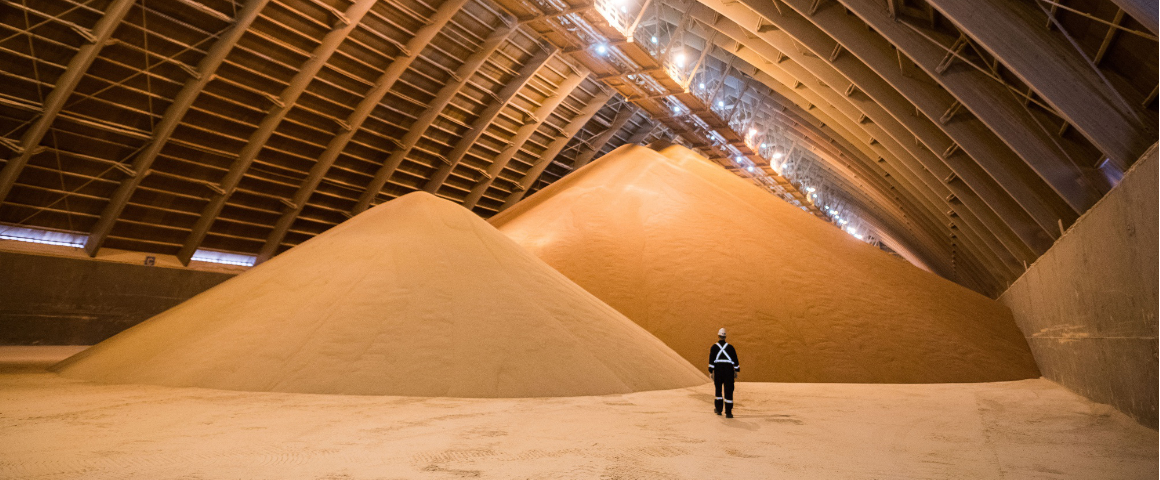By Erin Weir
Premier Scott Moe was recently in Dubai promoting Saskatchewan resources to the world. But provincial advertising is unlikely to influence global demand for commodities and exporting them is not an end unto itself.
Policymakers should instead focus on the reason we extract natural resources: generating income for Saskatchewan people.
Saskatchewan sold a record $18 billion of potash in 2022 but received little more than one-third of this amount. Potash corporations kept most of the proceeds even though the mineral belongs to the province.
The Saskatchewan Mining Association reports that potash companies paid less than $1 billion to employees and below $2 billion to local suppliers in 2022.
The province’s 3 percent resource surcharge captured half a billion. Potash royalties, base payments and the profit tax collected $2.4 billion. Potash companies paid perhaps another billion in provincial corporate income tax.
In summary, Saskatchewan workers and businesses received under $3 billion and the provincial government collected no more than $4 billion from $18 billion of potash sales.
Saskatchewan mined the same tonnage of potash in 2021 and 2022, but the Ukraine war more than doubled its price. Sales jumped from $8 billion in 2021 – already more than any previous year – to $18 billion in 2022.
Potash companies made an extra $10 billion not from increased production, investment, advertising or risk-taking but from international events beyond their control.
Ten billion is enough to pay off the provincial General Revenue Fund’s entire operating debt. It is $8,500 for every adult and child in Saskatchewan, 17 times the value of the $500 affordability cheques the provincial government sent only to adult tax-filers in 2022.
Although potash prices and profits are down from 2022, they remain high compared to prior years. Saskatchewan sold more than $10 billion of potash in the first eleven months of 2023, which exceeds all of 2021 and every previous year.
The provincial government missed most of the 2022 windfall and collects only about a quarter of continuing potash profits because of royalty and tax loopholes. In 2003, it began allowing potash companies to write off 120 percent of new investment in calculating profit tax. It also exempted future output above the 2001 and 2002 average.
As potash prices rose over the past twenty years, companies have deducted more than the amount invested against existing production and then never paid profit tax on additional production. Today, more than a third of Saskatchewan potash sales are perpetually exempt.
A wide range of economists have recommended limiting write-offs to 100 percent of investment and restoring the profit tax to cover all potash output. The 2015 provincial budget promised “a review of the entire potash royalty and taxation regime” but it was never conducted.
Former Saskatchewan finance minister Eric Cline, who instituted the 2003 incentives, has written a book forthcoming from University of Regina Press that concludes it is past time for the province to collect a better return from its potash.
The only counterargument seems to be supposed competition from abroad. In fact, more than 90 percent of Saskatchewan potash is produced from low-cost mines built in the 1960s that are not going anywhere.
Saskatchewan owns the world’s richest potash reserves, which is why BHP is building a new mine at Jansen. Even if provincial royalties and taxes increased, it is hard to imagine western companies shifting investment to the other major potash jurisdictions: Russia and Belarus.
Despite missing the recent windfall, Saskatchewan can still collect a fair share of future potash profits. Having returned from Dubai, Premier Moe should turn his attention to this economic opportunity that is completely within the provincial government’s control.
Erin Weir is a consulting economist and the former MP for Regina–Lewvan. A previous version of this commentary appeared in the Regina Leader-Post and Saskatoon StarPhoenix.
Support socialist media!
If you found this article useful, please consider donating to People’s Voice or purchasing a subscription so that you get every issue of Canada’s leading socialist publication delivered to your door or inbox!
For over 100 years, we have been 100% reader-supported, with no corporate or government funding.




